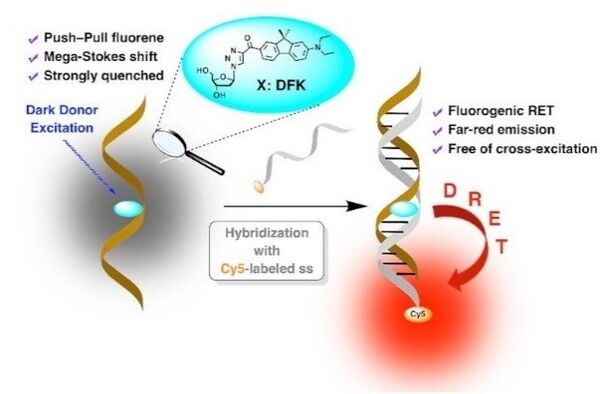Intermolecular dark resonance energy transfer (DRET): upgrading fluorogenic DNA sensing
FRET sensitivity is usually limited by the spectral overlaps of the FRET donor and acceptor. To overcome this limitation, a quenched donor presenting a large Stokes shift can be combined with a bright acceptor to perform Dark Resonance Energy Transfer (DRET). The resulting fluorogenic response from the acceptor considerably improves the signal-to-noise ratio. Together with the team of A. Burger (Université de Nice), our aim was to develop the first intermolecular DRET pair for specific sensing of nucleic acid sequences. We designed DFK, a push-pull probe that was incorporated into a series of oligonucleotides and used as a DRET donor with Cy5-labeled complementary sequences. Excitation of DKF in the duplex switched on the Cy5 emission and remained free of cross-excitation. This concept was further applied with binary probes, confirming the distance dependence of DRET as well as its potency in detecting sequences of interest with low background noise.
Reference: Intermolecular dark resonance energy transfer (DRET): upgrading fluorogenic DNA sensing.
Nucleic Acids Res. 2021 Jul 9;49(12):e72. DOI: 10.1093/nar/gkab237

